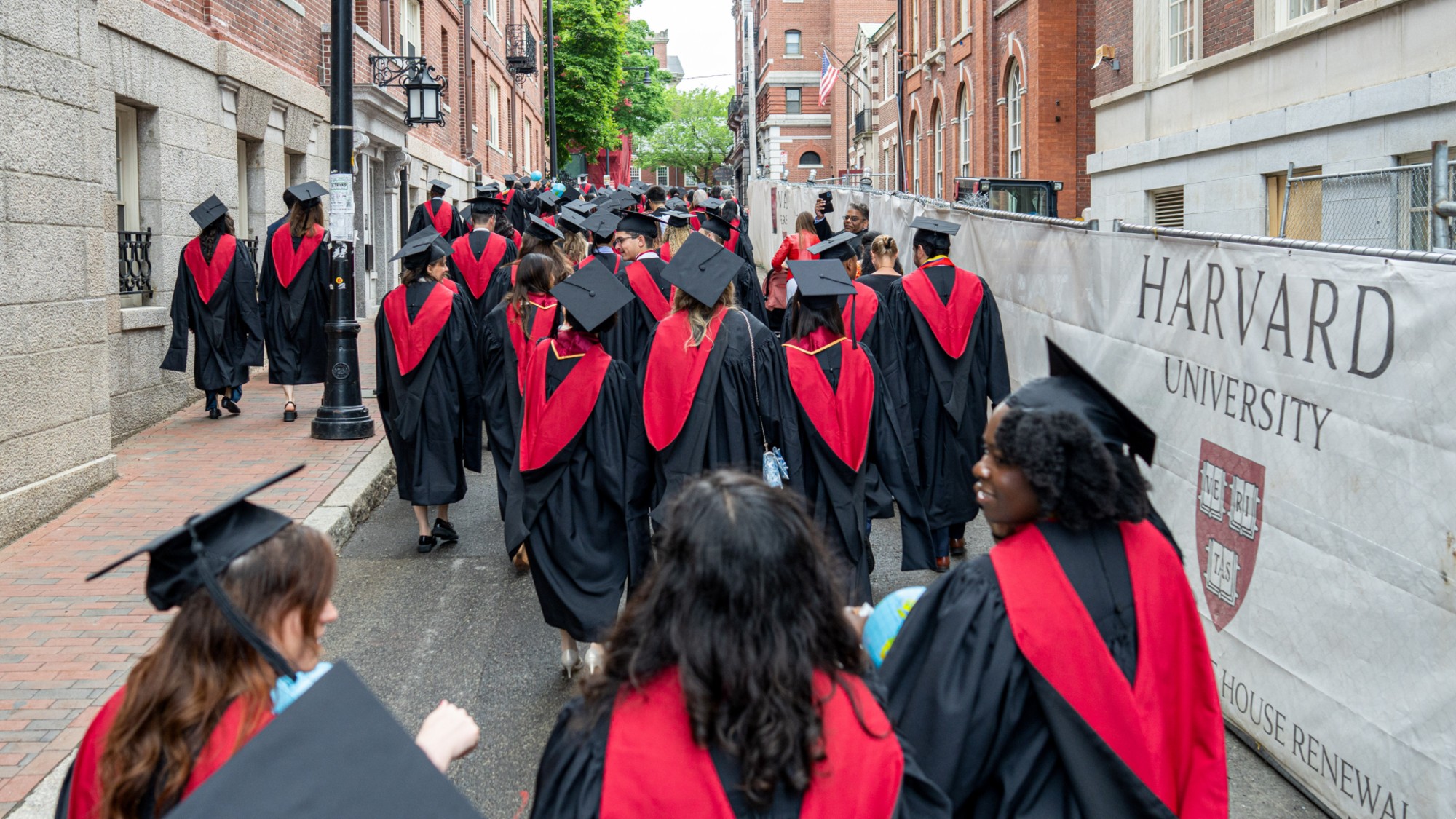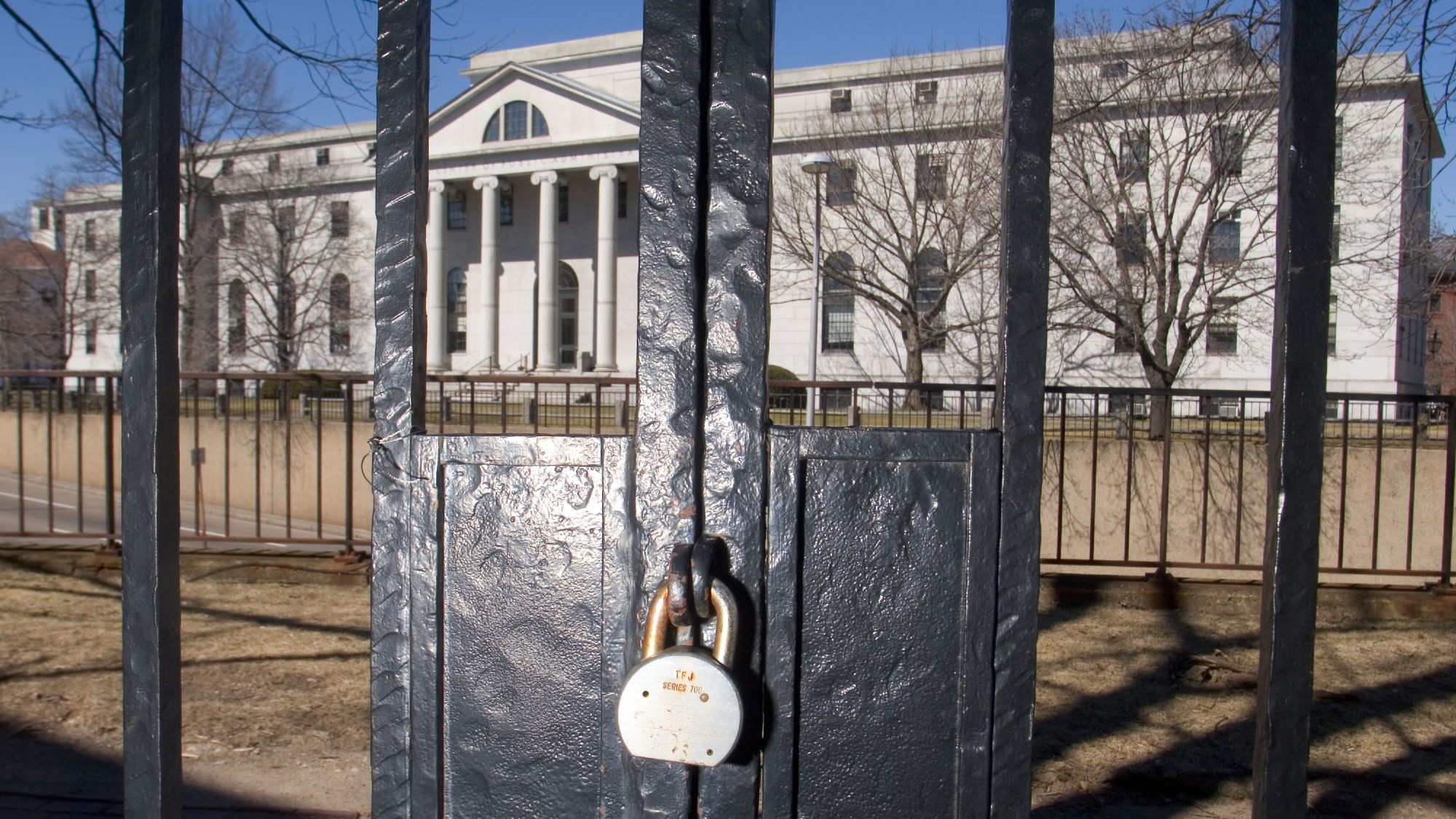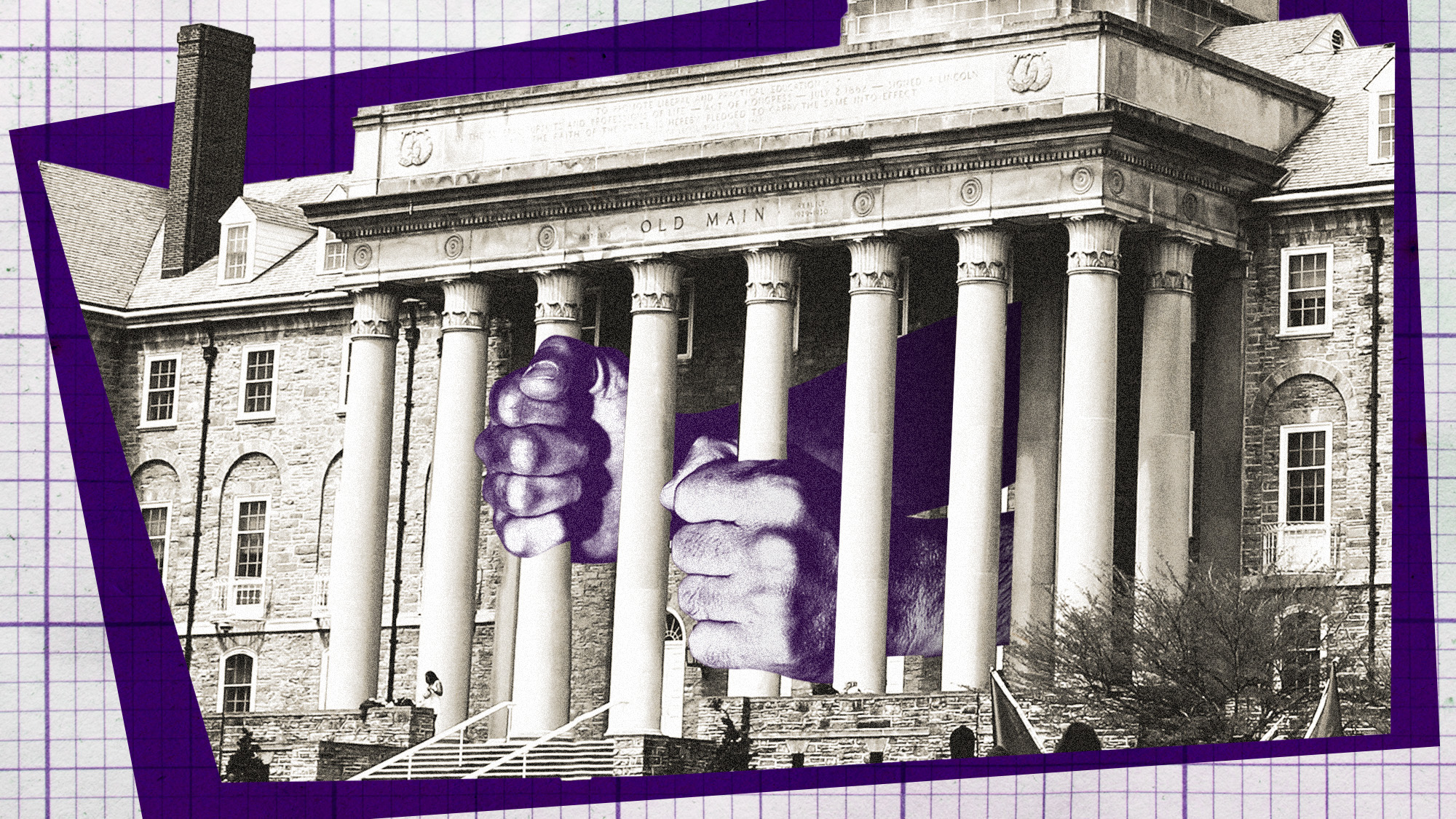Can British universities keep up with global rivals?
UK is losing ground to competitors, with China edging up the rankings

A free daily email with the biggest news stories of the day – and the best features from TheWeek.com
You are now subscribed
Your newsletter sign-up was successful
British universities, once the country's "trump card", are at risk of "terminal decline", said Emma Duncan in The Times.
This year's Times Higher Education (THE) World University Rankings show the "beginning of a relative slide", wrote Duncan. Although the number of UK universities in the top 100 has risen by one from last year to 11, six of these have dropped down the rankings, with Cambridge falling from third place to fifth. Despite all having a better overall score in the newly published rankings than in 2023, they were pushed down by overseas institutions.
The UK university sector is still "a real jewel in the crown" of the country, according to Phil Baty, THE's chief global affairs officer. But an analysis by the magazine of six years of data found that the overall position of the UK – and US – is "declining relative to other higher education systems".
The Week
Escape your echo chamber. Get the facts behind the news, plus analysis from multiple perspectives.

Sign up for The Week's Free Newsletters
From our morning news briefing to a weekly Good News Newsletter, get the best of The Week delivered directly to your inbox.
From our morning news briefing to a weekly Good News Newsletter, get the best of The Week delivered directly to your inbox.
The average rank of UK universities dropped from 451 in 2019 to 477 this year, while China, Australia and Canada recorded improvements. And two US institutions dropped out of this year's top 15, making room for two Chinese universities.
What did the papers say?
Oxford remains the "undisputed heavyweight champion" of the THE League, said Duncan in The Times, with the ancient institution claiming the top spot for a record eighth consecutive year.
But across the board, she added, UK universities are failing in much the same way as the rest of country’s infrastructure: "We’re living off the past and running down our assets." Britain has been underfunding teaching and research, with "the short-termism characteristic of so much recent decision-making".
"Alarm bells are sounding," said the Financial Times in July, amid concerns over the state of university finances. A return to an "acute funding crisis of the mid-1990s" is not unthinkable, the paper warned.
A free daily email with the biggest news stories of the day – and the best features from TheWeek.com
A Russell Group analysis found that universities face an average shortfall this academic year of approximately £2,500 on every home undergraduate student, and that this could rise to £5,000 by 2029-30 unless the funding system changed.
The immediate challenge, said Simon Marginson, professor of higher education at Oxford, is to overcome the "triple whammy" of inflation rises, the loss of EU funds and growing uncertainty around the future of the international student market as China's relations with the West come under growing strain.
Meanwhile, more than 40,000 undergraduate students withdrew from courses at UK institutions last year, according to new statistics from the Student Loans Company (SLC). The drop-out rate was up 5% from 2021-22, and was the highest since the records began in 2018-19.
Experts believe a key reason for the trend is the financial strain being placed on students, which is being compounded by the cost-of-living crisis and is triggering a mental health crisis.
University students are more at risk of depression and anxiety than their peers who go straight into work, according to a research paper published in the Lancet Public Health. Over the past six years, the percentage of undergraduate students across UK universities who said they had experienced mental health problems has risen from 6% to 16%, which could be linked to "increased financial pressures and worries about achieving high results in the wider economic and social context", said the study authors.
The pandemic has not helped matters, dulling the university experience for many students. Thousands of new students were "locked down" in their halls of residence in 2020, said the FT. A legal class action by more than 100,000 students is now seeking compensation for their loss of experience.
Even before the pandemic, said Adrian Pabst in The New Statesman, universities had been hijacked by a managerial class intent on turning them "into soulless corporations disconnected from the rest of Britain".
"The war on the traditional notion of a university has hollowed out the esprit de corps that once defined British higher education," he argued.
What next?
Further threats are "coming down the line", warned the FT. If today's decline in the real-terms value of fees continues, within a decade "even the UK's most elite institutions will find themselves diminished". And this decline could be further exacerbated as countries such as China pour more money and resources into their own universities.
Our universities clearly need greater investment and efficiency, but many are now "beyond redemption and a good number of them should be gently allowed to die", said Andrew Tettenborn in The Spectator. They should be replaced with a new kind of slimmed-down institution,"one limited to providing libraries, lecture-rooms and scholars for students with a desire to learn".
Saving UK universities, in whatever form, is a "generational task that will require long-term thinking and significant commitment of resources", said Pabst in The New Statesman. But "the war on the university is not lost for as long as the battle over its soul continues".
Felicity Capon is senior editor of The Week Junior, where she oversees the magazine’s international news section. She was the title’s editor for several years, during which she was shortlisted for the BSME Fiona Macpherson Best New Editor award. She also appeared on The Emma Barnett Show on Radio 5 Live, The Sarah Brett Show and the Media Masters podcast. She is a regular contributor to The Week Unwrapped podcast, and has written for The Week, The New Statesman, The Times, The Telegraph and Newsweek.
-
 Bondi, Democrats clash over Epstein in hearing
Bondi, Democrats clash over Epstein in hearingSpeed Read Attorney General Pam Bondi ignored survivors of convicted sex offender Jeffrey Epstein and demanded that Democrats apologize to Trump
-
 Are Big Tech firms the new tobacco companies?
Are Big Tech firms the new tobacco companies?Today’s Big Question Trial will determine if Meta, YouTube designed addictive products
-
 El Paso airspace closure tied to FAA-Pentagon standoff
El Paso airspace closure tied to FAA-Pentagon standoffSpeed Read The closure in the Texas border city stemmed from disagreements between the Federal Aviation Administration and Pentagon officials over drone-related tests
-
 American universities are losing ground to their foreign counterparts
American universities are losing ground to their foreign counterpartsThe Explainer While Harvard is still near the top, other colleges have slipped
-
 Where will international students go if not the US?
Where will international students go if not the US?Talking Points China, Canada and the UK are ready to educate the world
-
 Colleges are canceling affinity graduations amid DEI attacks but students are pressing on
Colleges are canceling affinity graduations amid DEI attacks but students are pressing onIn the Spotlight The commencement at Harvard University was in the news, but other colleges are also taking action
-
 Can Trump ban overseas students from US universities?
Can Trump ban overseas students from US universities?Today's Big Question President's decision to revoke Harvard's access to database for admitting international students 'drastically escalates' the dispute
-
 America's academic brain drain has begun
America's academic brain drain has begunIN THE SPOTLIGHT As the Trump administration targets universities and teachers, educators are eying greener academic pastures elsewhere — and other nations are starting to take notice
-
 Is academic freedom in peril?
Is academic freedom in peril?Today's Big Question Faculty punishments are on the rise
-
 Anti-Israel protests impact a Jewish-rooted university
Anti-Israel protests impact a Jewish-rooted universityThe Explainer The president of Brandeis University resigned as a result of multiple factors, including his handling of recent protests
-
 Why are so many colleges closing?
Why are so many colleges closing?Today's Big Question 'Enrollment cliffs' and higher tuition both play a role